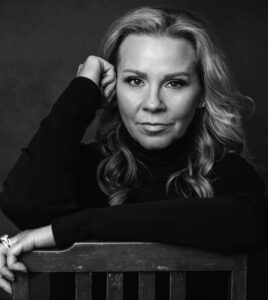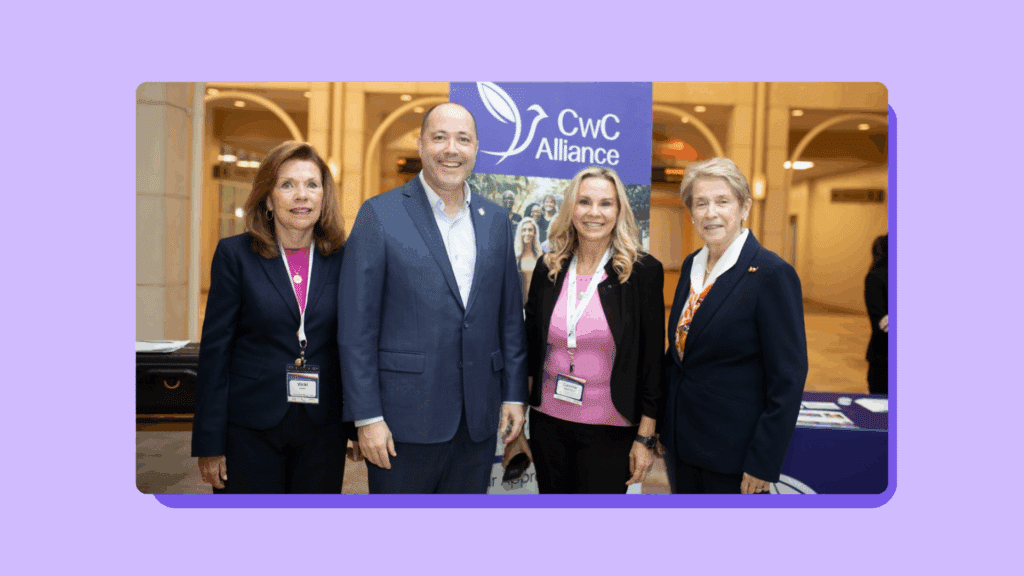The opioid crisis continues to devastate families and communities across the nation. Georgia has been hit particularly hard, with opioid-related deaths increasing by 302% between 2010 and 2022, and fentanyl adding new urgency to an already devastating epidemic. Yet, as we see in our state, if we can begin to turn the tide here, we can do it anywhere.
On September 18, the CWC Alliance partnered Mercer University School of Medicine and its Georgia Rural Health Innovation Center to host an event focused on deepening our understanding of the opioid and fentanyl crises, especially in rural Georgia where communities are often hit the hardest. Our goals were clear: to shed light on the scope of the problem, to highlight the resources and prevention strategies available, and to strengthen collaboration across sectors. Distinguished voices joined us, including Georgia Attorney General Chris Carr, Commissioner Kevin Tanner, Mercer University Executive Vice President and Interim Provost Penny Elkins, PhD, and many others. Together, they reminded us that solving this crisis requires more than awareness: it requires urgent, collective action.
Captions are auto generated
Why a Multistakeholder Approach Matters
The opioid epidemic is a complex issue that cannot be solved by one institution alone. It demands a multistakeholder approach that brings together legislation, law enforcement, medical professionals, advocacy groups, and community leaders. Attorney General Chris Carr reminded us of the power of statewide action. In 2017, he created Georgia’s first opioid task force, which today stands as a national model with more than 300 partners and has secured $1 billion for our state to save lives.
We also heard the powerful role of advocacy and education. Nearly 75% of people prescribed opioids don’t realize they are taking them, as they come in familiar forms like Percocet or OxyContin. That lack of awareness can be deadly. Advocacy groups and nonprofits like CWC Alliance play a critical role in educating the public, reducing stigma, and pushing for systemic change. Partnerships with the medical community are just as vital. Since most addiction begins with a prescription, doctors, nurses, and health systems must be part of both prevention and long-term care. The event underscored a simple truth: the power of partnerships can save lives.
Introducing the Life Care Specialist Model
For me, this work is personal. My son Christopher lost his life to an opioid overdose, and it is his legacy that fuels the mission of the CWC Alliance. On the very day of Christopher’s heavenly birthday, it was meaningful to share how the Life Care Specialist (LCS) program is providing hope and healing.
Life Care Specialists act as “coaches” at a patient’s bedside, supporting them through pain management, mental health challenges, and referrals to outside resources that address needs beyond medicine. At Mercer University, we have partnered to create a rigorous LCS training program with 13 modules, 8 interactive lessons, and a clinical rotation. To date, 22 Life Care Specialists have been trained through this program, serving more than 4,000 patients. This is more than a model of care, it’s a movement that is transforming how hospitals support patients.
Confronting the Fentanyl Crisis
We cannot talk about opioids without addressing fentanyl. Nearly 80% of heroin users began with an opioid prescription, and fentanyl’s lethal reach has only magnified the crisis. At the event, we screened the powerful documentary Fentanyl: Death Incorporated, which shed light on the devastating human and community toll. One sobering reality: less than 3% of healthcare funding goes toward prevention. That is unacceptable, and it underscores why initiatives like the LCS program must scale nationally.
Building a Path Forward
This event with Mercer University reinforced that the opioid crisis is not a problem that happens to “other people.” It is a human crisis that touches every family, every community, and every sector of our society. Rural Georgia may be our starting point, but the lessons we are learning here can guide national solutions. As Mercer University School of Medicine Dean Jean Sumner, MD, FACP, shared, the school’s mission is to serve rural Georgia and develop models that can be replicated far beyond the state. That mission is why this partnership matters so much.
I am grateful for the voices who came together—Attorney General Chris Carr, Commissioner Kevin Tanner, Dr. Jean Sumner, Dr. Penny Elkins, Dr. Shencker, and the many advocates and healthcare providers who joined us. I am especially proud of the recognition given to the Life Care Specialists, who stand on the frontlines every day, walking alongside patients in moments of great vulnerability.
Now, we must carry this momentum forward. Through prevention, policy, education, and community action we must create the safety net our families and communities need.
My call to action is simple: Imagine a Life Care Specialist in every hospital across Georgia and nationwide. Imagine what that would mean for prevention, for recovery, and for saving lives. Together, with the right partnerships and commitment, we can make that vision a reality.


